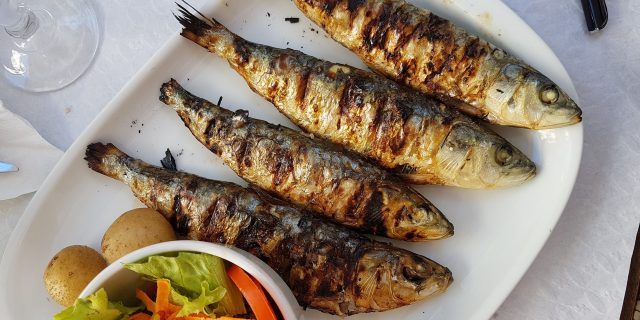
Portuguese culture is full of vibrant customs and traditions that have been developed over the centuries. From its unique language to its music, cuisine, and art, Portugal offers a rich cultural experience for those eager to explore Portuguese heritage. Music is an important part of Portuguese culture – from traditional folk songs which embody the country’s love of nature to its passionate fado music which is known for its deep emotion. Portuguese cuisine is also diverse and varied, with influences from countries like Spain, France, and Africa. Dishes such as fish stew, couscous, and bacalhau (salt cod) are particularly popular amongst locals. Art in Portugal is also steeped in rich tradition, with styles such as azulejos (painted ceramic tiles) and hand-crafted jewelry being popular among tourists. In addition, Portugal has a vibrant literary history, with the works of writers like Nobel Laureate José Saramago having been widely translated across the world. All in all, Portuguese culture is full of unique customs and traditions that truly make it a unique country that is worth exploring.
A Guide to Understanding the Rich History of Portuguese Culture and Tradition
Portuguese culture is a unique combination of history, tradition, and influences from various parts of the world. From its colonial era to today’s modern culture, Portugal boasts a fascinating array of influences that create an intriguing mix of lifestyle and heritage. To understand this rich cultural background, it’s important to gain an appreciation for the country’s history and traditions.
Portugal is a nation with strong connections to both the Roman Empire and Moorish heritage. This rich background has resulted in a unique cultural mix of languages, religions, and customs that remain today throughout the country. Portuguese people are known for their warm hospitality and friendliness, which is why many visitors come back again and again.
The Portuguese language is one of the oldest in Europe and its influence can be seen throughout the world today, use portuguese translation service. There are many dialects spoken in Portugal, but they all stem from the same language. The country’s traditional music is also unique, with fado being the most well-known type of music among locals and visitors alike.
Religion has also played an important role in Portugal’s history and traditions. Catholicism is the predominant religion, but other faiths are practiced as well including Judaism and Islam. Although many Portuguese people do not practice any religious belief, they still maintain a close connection to their faith by observing religious holidays and festivals throughout the year.
Exploring the Traditional Cuisine of Portugal: Unique Foods You Must Try!
Portugal has a long and rich culinary history, with traditional dishes that have been passed down for generations. The country’s unique blend of Mediterranean flavors, using fresh fish, seafood and locally-grown ingredients, is sure to tantalize the taste buds! From regional specialties such as Cozido à Portuguesa (Portuguese stew) to the famous pasteis de nata (custard tarts), here are some of the unique dishes you should try when exploring Portuguese cuisine.
For many, a trip to Portugal would not be complete without sampling some of its traditional seafood dishes. Fresh fish and shellfish can be found in abundance all along the coastline, and are often used to create classic dishes such as caldeirada de peixe (fish stew) or cataplana de marisco (seafood stew). These delicious meals are perfect for enjoying al fresco on a sunny day!
The traditional food of Portugal also includes classic meat-based dishes. Grilled sardines are a popular choice, as is frango de churrasco (grilled chicken) or a classic Portuguese steak. These dishes are usually served with hearty sides such as potatoes and vegetables, showcasing the country’s love of simple but flavorful ingredients.
Finally, no exploration of Portuguese cuisine would be complete without tasting some of its famous desserts. Sweet treats such as bolo de arroz (rice cake) and toucinho do céu (almond-based sweet pudding) are sure to satisfy any sweet tooth, while pasteis de nata (custard tarts) are a national favorite!
How Portuguese Traditions Are Evolving in the 21st Century
Portugal has a long and varied history, filled with traditional culture and customs that have been passed down through generations. In the 21st century, many of these traditions are still celebrated in Portugal today, though some have evolved to suit modern times. One example is the traditional Portuguese bullfight, which has changed from an event where animals were killed to one where no animals are harmed. Now, bullfighters use red capes to simulate the fight and challenge each other’s skills in a thrilling performance.
Another well-known Portuguese tradition is the song Fado, which originated in Portugal in the early 19th century and has since evolved into an international phenomenon. The traditional Fado was often romantic and melancholic, expressing the hardships of life through song. However, as Fado has become more popular, musicians have begun to incorporate other styles, such as jazz and pop, into their songs. This blending of musical styles creates a unique sound that appeals to modern audiences.
Other traditions in Portugal are also evolving to meet the demands of the modern world. For example, the traditional Portuguese dance of Fandango has become popular with younger generations, featuring faster tempos and incorporating moves from other styles like salsa and swing. Similarly, the traditional practice of Gafieira, which is a type of informal social gathering, has been adapted to incorporate modern electronic music.


